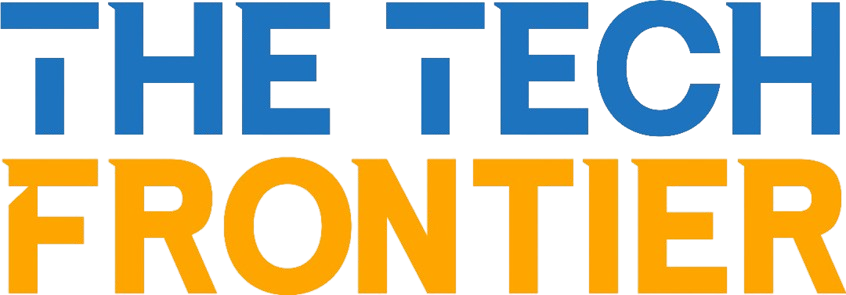Ugyard: The Ugandan Startup Reimagining Digital Trade
A Ugandan startup is challenging global tech giants with Ugyard, a local app built to put every business from market stalls to cross-border traders on the global stage.
A Ugandan technology startup is taking
on one of Africa’s biggest challenges: how to make digital trade accessible to
everyone, from small market vendors to cross-border merchants.
The company, Sahara Holdings Co,
has launched a mobile app Ugyard available on both iOS and Android designed
to bring every Ugandan business onto a single platform. Already supporting
buying and selling across Uganda and Dubai, the app aims to make commerce
seamless, affordable, and proudly local.
Closing the Digital Divide
For Ugyard’s founders, the motivation
is clear: too many global platforms are built for high-income economies,
leaving African entrepreneurs struggling with costs, complex onboarding, and
limited access.
World-class tools are not designed for
our realities. They exclude us from digital entrepreneurship, yet our societies
need it the most. Rather than waiting for multinational corporations to adapt
their platforms, Ugyard is building from the ground up creating solutions that
reflect Uganda’s unique economy and cultural fabric.
“Digital Landlords” vs Local Builders
Global apps such as Shopify, Amazon,
and TikTok dominate e-commerce and entertainment worldwide. But Ugyard argues
these platforms often extract more value from African users than they return.
“They have become digital landlords.
Our people are renting participation, while their data and capital are
offshored. Local ecosystems are weakened,” the company says.
Ugyard’s response is to design tools
that empower Ugandans to trade, earn, and grow value locally instead of
depending on platforms built for other economies.
A Vision in Three Stages
The startup has laid out an ambitious
roadmap for Uganda’s digital transformation.
Immediate goals focus on building
simple, affordable digital tools that can help ordinary people launch
businesses quickly without heavy startup costs. These entry-level solutions aim
to lower barriers for participation in the digital economy.
In the mid-term, the company plans to
scale into full digital ecosystems. This means linking together trade, finance,
logistics, and productivity solutions into one connected framework that
empowers entrepreneurs and accelerates business growth.
Looking long-term, the mission is to
achieve digital sovereignty a future where Uganda not only consumes technology
but owns and controls its data and digital infrastructure. This vision seeks to
safeguard national independence in the digital age while unlocking new
opportunities for innovation.
Four Pillars of Transformation
The strategy is anchored on four key
pillars that guide every step of the journey.
Culture: At its
heart, the initiative aims to reclaim African narratives of success. By
elevating local stories through branding and digital storytelling, the startup
wants to prove that innovation can thrive on African soil and inspire the next
generation.
Access &
Inclusion: The mantra is simple “if you have a phone, you have a business.”
This means stripping away barriers to participation, ensuring that anyone with
a mobile device can engage in trade, access financial services, and connect to
new opportunities.
Commerce: Building
pathways for local-to-global value exchange is central. With tools for
payments, logistics, and digital shops, the ecosystem will help Ugandan
entrepreneurs sell both locally and internationally, making digital trade
seamless.
Trust & Data: At
the foundation lies trust. The startup is committed to building transparent,
fraud-resistant systems that protect users. At the same time, collecting and
analyzing local data will provide insights to drive better decisions for businesses,
policymakers, and communities alike.
Uganda’s Growing Market
The launch comes at a time of rapid
technological growth in Uganda. The country now counts more than 18 million
smartphone users, according to the Uganda Communications Commission, with
fintech and internet adoption reshaping everyday life.
Yet, many Ugandan businesses remain
invisible online locked out by the high costs and design philosophies of
foreign platforms. Ugyard wants to bridge that gap, making sure even the
smallest enterprise can participate in the digital economy.
Building Together
The company emphasizes that Ugyard is
more than just an app it is a movement. It is inviting developers to build
tools that directly serve local communities, researchers to model Uganda’s
economy and consumer behavior, diaspora communities to invest and bring global
expertise back home, and merchants along with early adopters to test, provide
feedback, and refine the product. “If you believe tools should make you
productive, not addicted join us. If you’ve waited long enough for someone to
build for Uganda build with us,” the founders declare.
The Bigger Picture
Ugyard may still be in its early
stages, but its ambition is clear: to engineer digital tools that make Ugandan
businesses visible, competitive, and globally connected. By rethinking how
technology serves society, the startup hopes to transform entrepreneurship from
a survival tactic into a driver of national prosperity.
As conversations around artificial
intelligence and big data dominate global tech, Ugyard argues that Africa must
first ensure it has the digital infrastructure and working tools that empower
its people.
“This is our moment to shape
technology before it shapes us,” the team insists.
With Ugyard now available to download on Google Play Store and the Apple App Store, the question is whether Ugandans and their regional neighbors will embrace this vision of accessible, homegrown digital commerce.









0 Comments
No comments yet. Be the first to comment!